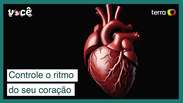A heart rate above 70 beats per minute increases the risk of heart disease
Summary
Research indicates a higher risk of heart disease with a heart rate above 70 bpm. To test and reduce risks, deep breathing, fat loss and eliminating harmful habits are recommended.
-
BY PARTICIPATING

Protect your health by monitoring your heart rhythm
-
BY PARTICIPATING
-rhoelfuj9mi8.jpg)
Does touching an object with sperm make you pregnant?
-
BY PARTICIPATING

5 dangers arising from exposure to rainwater mixed with sewage
-
BY PARTICIPATING

Oral insulin reduces side effects in the treatment of diabetes
When was the last time you checked your resting heart rate? Because today could be the day of a test.
The researchers discovered that those who have a heart rate above 70 beats per minute increase the risk of heart disease by 78%. Traditionally, a resting heart rate between 60 and 100 beats per minute is considered a healthy range. But when you consider the risk of heart disease, the number is much lower.
In general, you start to see the most significant risk at heart rates above 80 beats per minute, but you see a considerable increase starting at 70 beats per minute.
But if your heart rate is higher, don’t panic. First, the percentage increase is relative to those with lower heart rates (this does not mean you have a 78% chance of having heart disease). More importantly, you can start making immediate improvements.
You can lower your heart rate through exercise, losing body fat, reducing stress, sleeping better, and eliminating tobacco and alcohol. Research suggests you can see changes in just two weeks.
To test your heart rate, sit in a chair and take 10 to 12 deep breaths to help your body relax. Then, check your pulse and count how many times your heart beats in 15 seconds. Multiply that by four and you get your resting heart rate.
Watch the video with commentary by André Forastieri.
André Forastieri is a journalist and entrepreneur, founder of Homework and the content and connections agency Compasso, as well as a mentor to professionals and executives. Find out more aboutandreforastieri.com.br
.
Source: Terra
Ben Stock is a lifestyle journalist and author at Gossipify. He writes about topics such as health, wellness, travel, food and home decor. He provides practical advice and inspiration to improve well-being, keeps readers up to date with latest lifestyle news and trends, known for his engaging writing style, in-depth analysis and unique perspectives.





![Un Si Grand Soleil preview: Thursday 16 October 2025 episode recap [SPOILERS] Un Si Grand Soleil preview: Thursday 16 October 2025 episode recap [SPOILERS]](https://fr.web.img6.acsta.net/img/23/e8/23e803cee5b560481303033f6e86fd7e.jpg)


